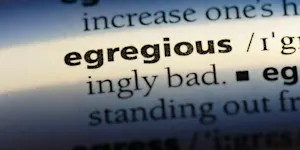What Makes This Word Tick
"Heuristic" is a bit of a mouthful but packs a punch when it comes to problem-solving. It's like the Swiss army knife of words, often used to describe techniques and strategies that help people and computers learn more efficiently. Think of it as a shortcut through the maze of life—it might not give you the perfect solution every time, but it sure gets you there faster.
If Heuristic Were a Person…
Heuristic would be that eccentric professor who always has just the right trick up their sleeve to solve a seemingly impossible puzzle. They might look a bit disheveled, always juggling notebooks and coffee cups, but they can cut through the clutter and find that sneaky loophole or clever method everyone else missed.
How This Word Has Changed Over Time
Originally stemming from a Greek word meaning "to find" or "to discover," "heuristic" stumbled into the English language back in the early 19th century. It started off in academia, elbowing its way into educational and psychological contexts, but these days you'll find it hanging out in tech circles, too, especially in discussions about artificial intelligence and algorithms.
Old Sayings and Proverbs That Use Heuristic
While you won't find "heuristic" popping up in old proverbs quite like "a stitch in time saves nine," its spirit is all over those clever shortcuts to wisdom. Consider the essence of "necessity is the mother of invention"—a heuristic gem that reminds us how challenges spark creative, ground-breaking solutions.
Surprising Facts About Heuristic
Heuristic methods actually mimic our "rule of thumb" thinking. They're frequently employed in fields like computer science, psychology, and even chess strategy. And here's a fun tidbit: animals use heuristics too when they're foraging for food, proving that even Mother Nature appreciates a good mental shortcut.
Out and About With This Word
In the bustling world of tech conferences and STEM seminars, "heuristic" is right at home. You might overhear someone dropping it at an artificial intelligence workshop or during a friendly debate on data algorithms in a cozy bookshop cafe. It’s a term worn comfortably by those who enjoy solving complex riddles.
Pop Culture Moments Where Heuristic Was Used
While "heuristic" might not headline a Broadway show, it certainly makes guest appearances in science fiction novels, infotainment shows, and tech-focused movies. Think Star Trek or any sci-fi universe where characters set their phasers to "problem-solving mode" with effortlessly devised experiments and hypotheses.
The Word in Literature
Though not stuffing its way into Dickens novels, "heuristic" can be found lurking in the pages of academic textbooks and non-fiction offering cognitive explorations. You'll meet it in works that dive into psychology's toolbox or explore the foggy realm of AI, where the bookish types find delight in its application.
Moments in History with Heuristic
During World War II, mathematician Alan Turing employed heuristic techniques to crack the Enigma code—a historic feat that sped up the end of the conflict. This word encapsulates the creativity and strategic thinking that often goes hand-in-hand with historical problem-solving triumphs.
This Word Around the World
In Germany, you might hear the word "heuristisch," closely mirroring its English counterpart. Across the globe, languages may not directly adopt "heuristic," but the concept of experiential learning and informed guessing cuts across cultural boundaries with universal utility.
Where Does It Come From?
"Heuristic" takes us on a linguistic journey all the way back to the Greeks with "heuriskein," which means "to find" or "to discover." Its continental adventure landed it in English, slipping into scholarly venues before branching out to tech-savvy conversations.
How People Misuse This Word
Sometimes people throw "heuristic" into a sentence hoping to sound smart, when what they really mean is "trial and error" or a plain guess. This confusion puts our clever friend in a box that doesn't quite fit its nuanced way of providing educated shortcuts.
Words It’s Often Confused With
Algorithm: While both involve solving problems, algorithms follow a prescribed set of rules, whereas heuristics offer more flexible approaches.
Empirical: Often related to observation, but without the focused utility-driven nature of heuristics.
Heuristic Device: Specifically a teaching tool or model, not to be confused with the general method.
Additional Synonyms and Antonyms
Synonyms for "heuristic" include intuitive, insightful, and discovery-based. Conversely, antonyms would be systematic, algorithmic, and rigid.
Want to Try It Out in a Sentence?
Next time you're faced with a challenging Sudoku puzzle, consider using a heuristic approach to find your way through the numbers—a little educated guessing never hurt anyone!
















